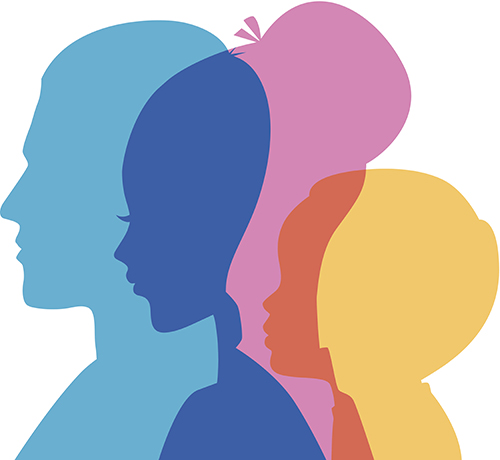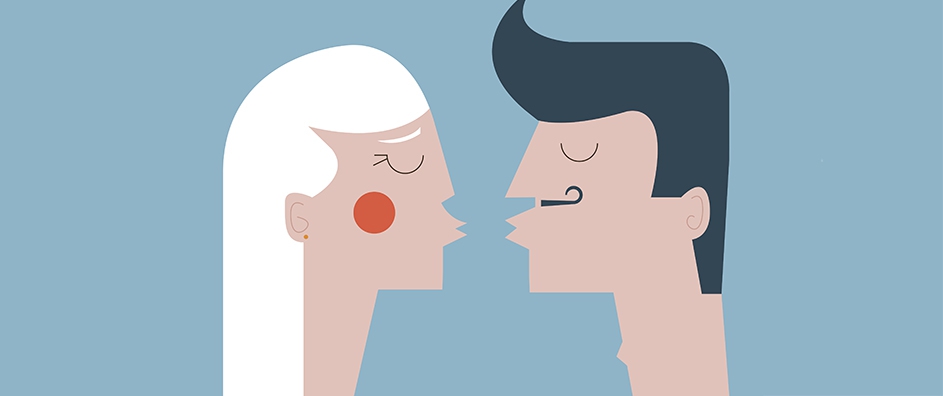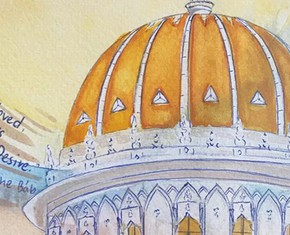The views expressed in our content reflect individual perspectives and do not represent the authoritative views of the Baha'i Faith.
These days, the whole world seems to be obsessed with the debate on human sexuality.
I’m witnessing the debate from my perch in Lagos, Nigeria where an anti-gay law was just passed — on the heels of another recent law that legalized marriage to under-aged girls. I live in America, but spend much of my time in Africa, so I encounter both worlds, and I see the relativity of culture and society so vividly.
In Nigeria today, a sexual act engaged in by two consenting adults is criminalized; while in the other case sexual acts engaged in by an adult upon an un-consenting child are legalized. It begs the question: “What is the standard?” And that question in turn begs the further question: “Should there even be a standard?”
I find that the role standards play is found in the creation of the necessary condition for ‘cultivation’. Cultivation in turn allows for the emergence of functional diversity and functional diversity is the defining quality that differentiates cultural vibrancy from chaos. In other words, standards allow for diversity to be expressed only in ways that do not disrupt the collective development. This is essentially how a garden is created out of wilderness. Indeed at the center of any ecosystem we find a set of organic standards that ultimately govern how the developmental impulse of that entire ecosystem expresses itself.
So the question I ask the Nigerian lawmakers is this: “What exactly are you trying to cultivate?” Because if you look for the commonality in the two laws recently passed, you find that they are essentially both defining sex as a violent act – an act used primarily to violate others.
This same question extends to us today as Baha’is in the raging debate about sexuality. Baha’is try to follow Baha’u’llah’s teachings, especially when he speaks about His mission to bring into being a “new race of men.” He gives five examples of what that race of men would be like, and the first example focuses on the nexus of human sexuality, material greed and violence. He describes how that new race of men won’t behave towards women and money in the way they do now, not because they are different, but because they have mastered self.
 In this respect, self mastery starts by requiring sincerity, not obedience. Indeed in an earlier passage in this same tablet, Baha’u’llah graphically elaborates in stunning allegory the fundamental difference between sincerity and obedience, and essentially states that His work is with those who are sincerely interested in His mission.
In this respect, self mastery starts by requiring sincerity, not obedience. Indeed in an earlier passage in this same tablet, Baha’u’llah graphically elaborates in stunning allegory the fundamental difference between sincerity and obedience, and essentially states that His work is with those who are sincerely interested in His mission.
The standard Baha’u’llah sets for human sexuality is in the control and expression of the sexual impulse, focusing that expression within the context of marriage. But in much of the debate currently raging in our societies, we have reduced the worth of a human being, or even that human being’s entire identity, to a mere assessment of one of the smallest behavioral aspects of our daily life.
The issue to me is less what an individual believes, and more how he or she acts on those beliefs. For any Baha’i struggling with any of the teachings of Baha’u’llah, they have stumbled upon the single dominating impulse of ALL transformative processes: the requirement to work through difficulties and grow spiritually. In fact, difficulty bringing one’s lifestyle into conformity with the Baha’i teachings can serve as a working definition of the daily life of all Baha’is – from those who live in Iran, for whom the injunction to not deny their Faith puts them in immediate and sustained peril; to the individual Baha’i in some other part of the world who has difficulty abiding by the vigorous Baha’i injunction against gossip and backbiting.
So as a Baha’i, I’m less interested in what anyone else thinks of my beliefs – I am interested exclusively in how I manifest my beliefs in my life so as to more fully express who I am uniquely and the role I play in the cultivation of the ‘new race of men’. But, for me to reduce that role to merely a reflection of one aspect of my reality — my sexuality and its expression — is in fact to participate in the active cultivation of this current society and its misplaced values. That goes against the very core of the message of Baha’u’llah, a message I believe in but have no desire whatsoever to ’make’ anyone else believe in.
One must see in every human being only that which is worthy of praise. When this is done, one can be a friend to the whole human race. If, however, we look at people from the standpoint of their faults, then being a friend to them is a formidable task….
Thus is it incumbent upon us, when we direct our gaze toward other people, to see where they excel, not where they fail. – Abdu’l-Baha, Selections from the Writings of Abdu’l-Baha, p. 169.
You May Also Like
Comments

















Should a country's laws impose the teachings of one religion on everyone else in a country? Muslims in the north and Christians in the south of Nigeria agree to that, but differ on which religion is the basis for law. Nigeria, unlike Sudan, hasn't gone to civil war (Sudan has several times) or split in two (South Sudan).
Also, political philsophy and a study of classical liberalism and ...terms like negative/positive freedom/liberty/rights are needed to understand Western societies and their poltical systems based on (classical) liberal democracy.
Africa as a continent has countries like Nigeria (sodomy laws) to South Africa (marriage equality) and various countries in between.
I don't see why it is demeaning that some people have a different sexual identity an., therefore, experience a different daily life, yes even a different approach towards spirituality. Ignoring that fact by stating that their sexuality is just something which happens to be western invention ...is belittling them and their personal life, although it might not be intended. Also, only reducing their struggle to nothing than a sexual act (which you seem to have been doing by just referring to it as a strive for sexual freedoms as in sexual pleasures unintendedly pays no attention to the rest of their daily lives). It seems you refer to heterosexuals as to have lives whereas non-heterosexual people to have nothing than lifestyles.
Unintended insults are still insults.